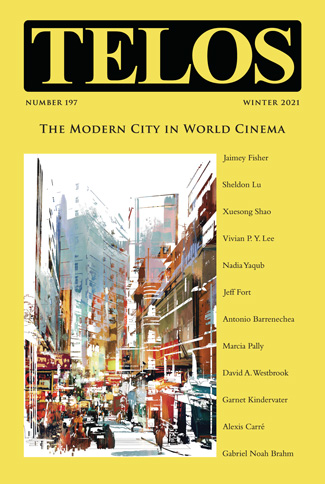In today’s episode of the Telos Press Podcast, David Pan talks with Chih-yu Shih about his article “Loving Hong Kong: Unity and Solidarity in the Politics of Belonging,” from Telos 202 (Spring 2023). An excerpt of the article appears here. In their conversation they discuss why liberalism is based on universal love rather than universal rights; the relationship between a rights-based liberalism and communitarianism in the West; the difference between Western universal love and Confucian benevolent love; solidarity love and role-embedded love; the Confucian critique of universal love; the meaning of “One Country, Two Systems” in Hong Kong; how the idea of benevolent love affects the understanding of “One Country, Two Systems” in comparison with the liberal idea of it; the different interpretations, based on universal love and benevolent love, of the 2014 and 2019 protests in Hong Kong; the links between benevolent love and stability and prosperity and between universal love with autonomy and political rights, and why there is a conflict between these two sets of goals. If your university has an online subscription to Telos, you can read the full article at the Telos Online website. For non-subscribers, learn how your university can begin a subscription to Telos at our library recommendation page. Print copies of Telos 202 are available for purchase in our online store.
|
In today’s episode of the Telos Press Podcast, David Pan talks with Vivian P.Y. Lee about her article “The City in Flux: Toward an Urban Topology of Hong Kong Cinema,” from Telos 197 (Winter 2021). An excerpt of the article appears here. In their conversation they discuss Hong Kong’s urban space and its cinematic reinventions; the relationship between cinematic space and disappearance; the cinematic lineage of Patrick Lung and John Woo, and their different depictions of modern urban institutions and individual heroes; the use of nostalgia in film to reveal darker realities of the dystopian present; how post-Umbrella Movement films have created new forms of production and distribution; the present and future of Hong Kong cinema; and the ways in which filmmakers have turned the city of Hong Kong into a protagonist. If your university has an online subscription to Telos, you can read the full article at the Telos Online website. For non-subscribers, learn how your university can begin a subscription to Telos at our library recommendation page. Print copies of Telos 197 are available for purchase in our online store. Telos 197 (Winter 2021): The Modern City in World Cinema, edited by Jaimey Fisher and Sheldon Lu, is now available for purchase in our store. Individual subscriptions to Telos are also available in both print and online formats.
Melody Yunzi Li’s “‘At Home in the World”: Hong Kong as a Cosmopolitan City in Xu Xi’s The Unwalled City” appears in Telos 180 (Fall 2017), a special issue on Cosmopolitanism and China. Read the full article at the Telos Online website, or purchase a print copy of the issue in our online store. Hong Kong is unique for its hybrid nature in language and culture. Drawing upon Ulf Hannerz’s model of cosmopolitans and locals, this paper argues that Hong Kongese are cosmopolitans and locals in one, other than the dichotomy raised by Hannerz. The paper considers how Xu Xi’s novel The Unwalled City questions any overarching or simplified understanding of cosmopolitanism and its utopian parlance of seamless linguistic-cultural coexistence. For Xu Xi, writing in English provides a crucially literary tactic with which to construct her multiple ethnic identities and eclectic images. |
||||
|
Telos Press Publishing · PO Box 811 · Candor, NY 13743 · Phone: 212-228-6479 Privacy Policy · Data Protection Copyright © 2024 Telos Press Publishing · All Rights Reserved |
||||








